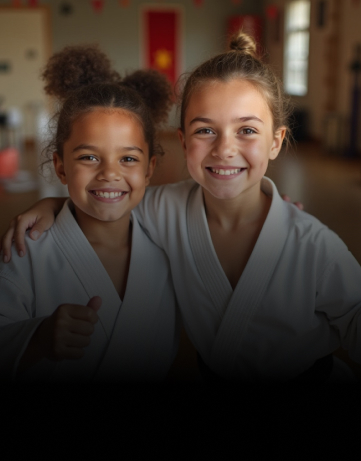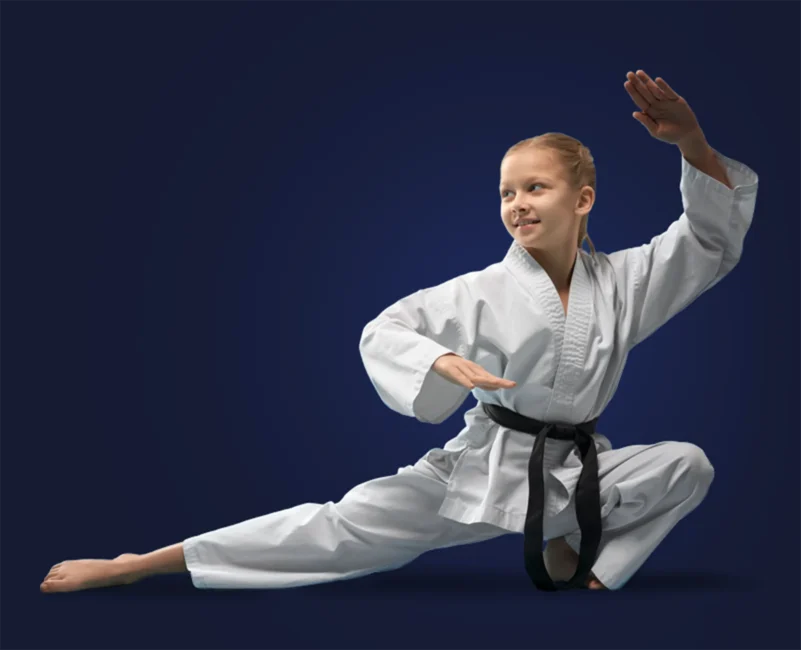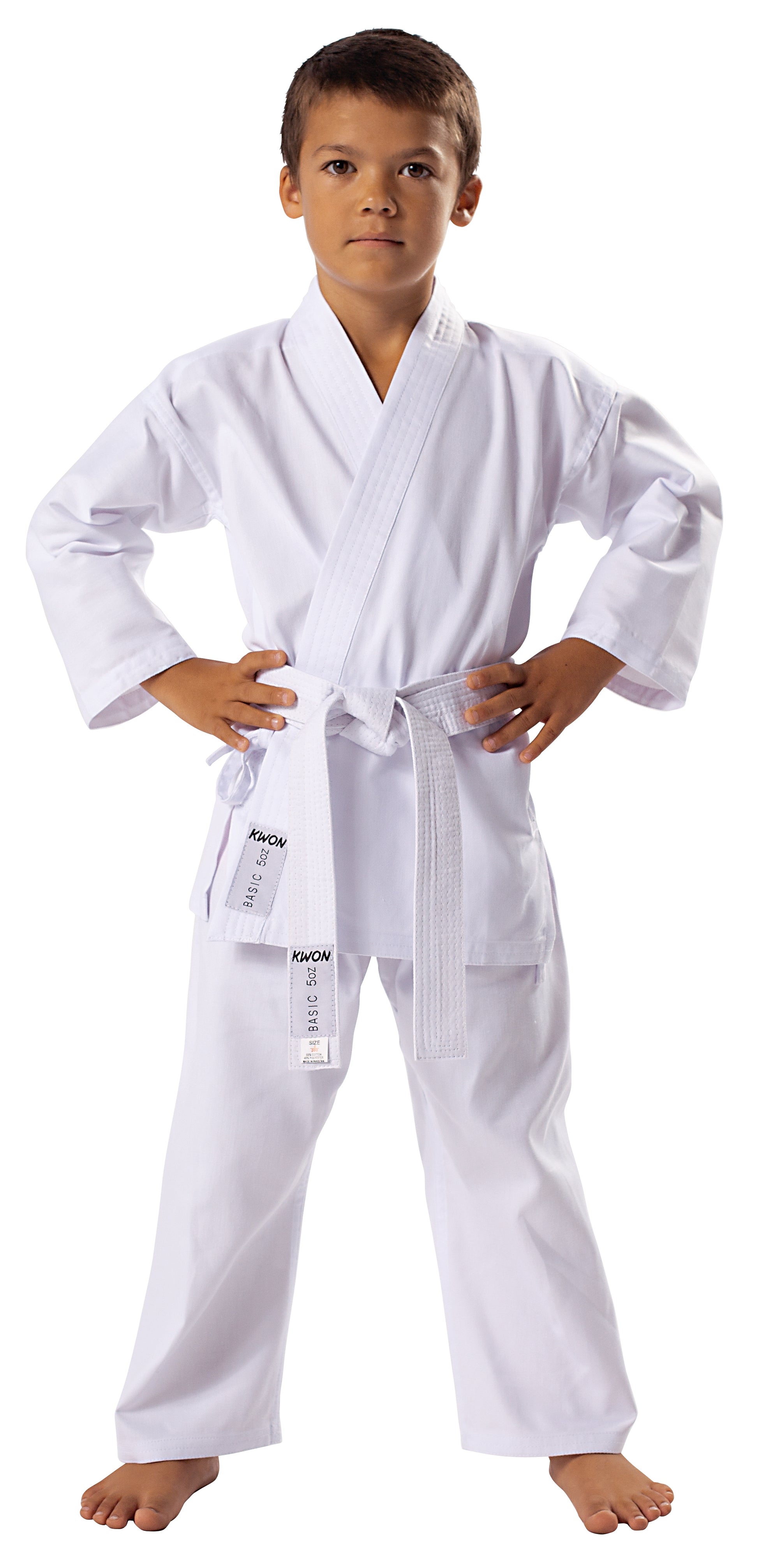Just How Karate for Children Can Boost Confidence and Self-control in Youthful Martial Artists
Karate for kids offers a special possibility to build self-confidence and self-control in young martial musicians. As they discover brand-new strategies and face obstacles, they not only acquire abilities however also establish a strong feeling of self-worth. This structured atmosphere motivates them to respect the journey of enhancement. However just how does this training convert right into their daily lives? Discover the deeper links that make karate more than simply a sport.
The Relevance of Self-confidence in Childhood Years Development
Confidence is an important foundation in youth development. When you support your youngster's self-esteem, you encourage them to deal with obstacles, take risks, and share themselves freely. Youngsters with confidence are much more ready to check out new activities and social situations, which can lead to long lasting relationships and valuable experiences.Encouraging your child to tip out of their comfort area fosters resilience. They learn that failing isn't the end however rather a tipping rock to success. By commemorating their accomplishments, despite just how tiny, you aid them identify their abilities and worth.In this trip, assistance and favorable reinforcement from you play an important role. Whether it's via praise or just existing, your participation enhances their self-confidence. As they expand, this self-assurance comes to be a lifelong possession, equipping them to browse both difficulties and opportunities with a solid sense of self.
Exactly How Martial Arts Instructs Technique and Emphasis
Karate aids you develop self-control and emphasis through its structured training routine. As you practice mindfulness throughout each session, you'll discover to concentrate better both on and off the mat. And also, setting and achieving objectives in karate enhances your capability to remain attentive and committed.
Structured Training Routine
While you participate in karate training, you'll quickly uncover just how an organized routine infuses discipline and emphasis in young practitioners. Each class follows a particular layout, consisting of workouts, strategy method, and sparring. This consistency teaches you to appreciate the procedure and commit to enhancement. As you discover strategies and kinds, you create a sense of responsibility for your very own progress.The structured setting motivates you to set goals, whether mastering a brand-new belt or developing a kata. You'll discover that staying concentrated throughout courses and drills hones your concentration. The self-control you cultivate in karate prolongs past the dojo, favorably affecting your schoolwork and day-to-day routines. Each session enhances the importance of dedication, aiding you turn into a more regimented person.
Mindfulness in Method
As you exercise karate, you'll find that mindfulness comes to be an important part of your training. Each relocation needs your full interest, helping you remain concentrated on today moment. You'll learn to ignore distractions and focus on your breathing, movements, and purposes. This heightened recognition sharpens your reflexes and enhances your discipline.During sparring or types, you'll uncover the relevance of being emotionally existing - Karate Salisbury MD. You'll notice just how this emphasis not just improves your technique but additionally constructs your confidence. By practicing mindfulness in karate, you cultivate persistence and resilience, crucial characteristics that expand past the dojo. This way, martial arts educates you to harness your mind, helping you establish a self-displined method to difficulties both on and off the mat

Personal Goal Setting Techniques
Establishing objectives in karate isn't just regarding gaining belts; it's a powerful means to grow technique and focus. When you establish certain, achievable targets, you develop a roadmap for your development. As an example, rather than just intending to enhance your kicks, try concentrating on grasping a specific method each month. This technique maintains you inspired and engaged.Breaking down bigger goals into smaller sized, manageable actions assists you track your progress and celebrate small triumphes in the process. Whether it's refining your position or boosting your sparring endurance, every goal reinforces your commitment. As you accomplish these objectives, you'll build confidence in your skills and develop a strong feeling of technique that extends past the dojo into everyday life.
Building Resilience Through Martial Arts
Fighting style, particularly martial arts, supplies children a special opportunity to construct resilience in a supportive environment. In courses, they encounter obstacles that push their limitations, whether it's mastering a brand-new technique or sparring with a partner. Each obstacle, like a missed kick or a lost suit, comes to be a chance to find out and grow.As they exercise, kids learn to welcome pain and keep trying, you could try these out even when points obtain hard. They discover that failure isn't completion; it belongs to the journey. This attitude aids them bounce back stronger, not simply in the dojo, however in everyday life.With each difficulty they conquer, your youngster develops confidence in their capacity to take on barriers, sustaining their determination. Via martial arts, they'll recognize that strength isn't nearly physical stamina; it's about mental grit and perseverance, equipping them to deal with whatever life tosses their means.
The Role of Respect in Karate Training
Respect is a fundamental principle in karate training, promoting a society of technique and friendship amongst students. When you step onto the dojo floor, you're not just learning strategies; you're likewise finding out to appreciate your trainers, peers, and the art itself (Karate Salisbury MD). Bowing at the beginning and end of class isn't just a procedure; it signifies your recommendation of others' dedication.as and initiatives you create mutual respect, you'll find it enhances your understanding experience. You'll pay attention much more attentively to your teacher and gain understandings from fellow pupils. This atmosphere urges useful objection and support, allowing everybody to expand together.Moreover, regard cultivates self-discipline. Acknowledging the value of tough job and humbleness assists you stay focused on your training. Consequently, this respect translates into your daily life, improving your interactions and partnerships outside the dojo. Through martial arts, you find out that respect is important for personal development and neighborhood building
Achieving and setting objectives Success in Martial arts

Social Abilities and Team Effort in the Dojo
While training in the dojo, kids normally develop crucial social skills and team effort abilities. As they practice along with peers, they learn to connect efficiently, share area, and support each other. Each course offers opportunities for collaboration, whether it's during partner drills or team exercises. This teamwork cultivates relationships and creates a sense of belonging, making the dojo a nurturing environment.Kids likewise get valuable dispute resolution abilities. When they run into obstacles, such as disputes throughout sparring, they learn to navigate these scenarios check that constructively. They exercise patience and compassion, comprehending that everybody has various strengths and weaknesses.Moreover, joining team tasks grows a feeling of accountability. You'll see your kid discovering to depend on colleagues and take responsibility for their role in a team. These experiences not only improve their martial arts journey yet also furnish them with social devices they'll carry into various other locations of life.

The Long-Term Advantages of Martial Arts Beyond Childhood
As kids grow up and change right into adulthood, the advantages of martial arts expand much beyond the dojo. You'll find that the self-control and emphasis found out via martial arts can translate into your academic and expert life. Establishing and attaining objectives in martial arts fosters a strong work ethic, which can push you to stand out in any type of endeavor.Moreover, the self-confidence got from competing and understanding strategies can boost your self-worth, aiding you take on obstacles head-on. This strength comes to be invaluable as you face the unpredictabilities of adulthood.Additionally, the social abilities created via synergy and friendship in the dojo can cause far better relationships in both specialist and individual balls. You'll discover to communicate effectively, willpower disputes, and develop a supportive network.Ultimately, karate forms not simply knowledgeable martial musicians, however all-around individuals all set to handle the world.
Frequently Asked Inquiries
What Age Is Finest to Begin Karate for Children?
You can start karate as very early as age four or five, yet it commonly relies on your child's maturation and rate of interest. Finding a course that fits their age and energy degree makes a huge distinction.
Exist Any Wellness Advantages From Practicing Martial Arts?
Yes, exercising karate deals numerous wellness benefits. You'll boost your versatility, coordination, and stamina while enhancing cardiovascular health and fitness. Plus, it improves emphasis and psychological well-being, making it an amazing choice for overall physical and psychological health.
Exactly How Usually Should Youngsters Participate In Karate Classes?
You must encourage your youngsters to participate in karate courses a minimum of 2 to 3 times a week. Consistency assists them find out techniques efficiently and create abilities, making their experience much more satisfying and satisfying in the lengthy run.
Can Karate Aid With Managing Stress And Anxiety in Kid?
Yes, my review here martial arts can aid manage anxiety in kids. It shows emphasis and self-constraint while providing a safe outlet for energy. You'll observe your kid expanding extra tranquil and certain as they exercise routinely.
What Gear Is Needed for Kids Starting Karate?
